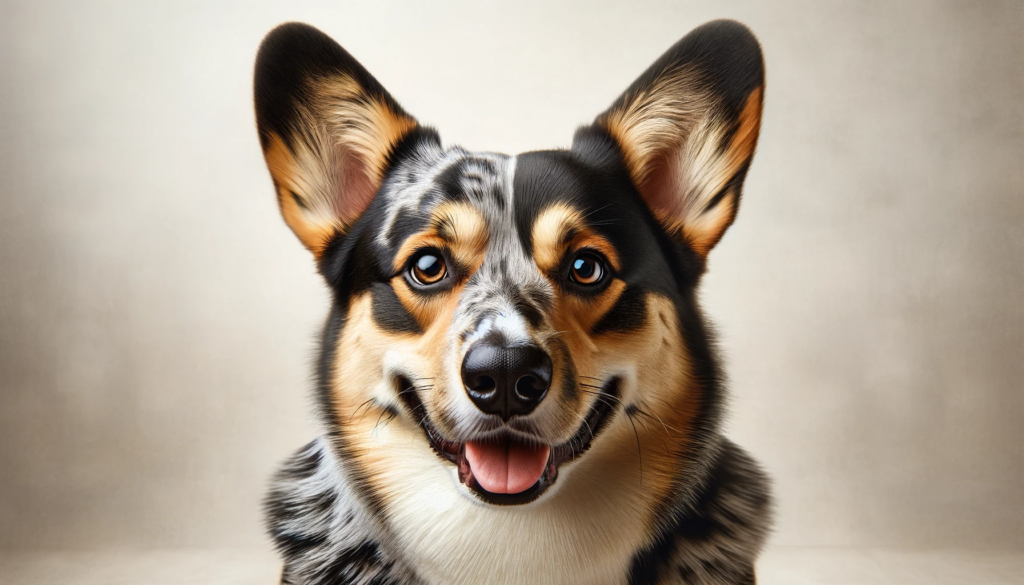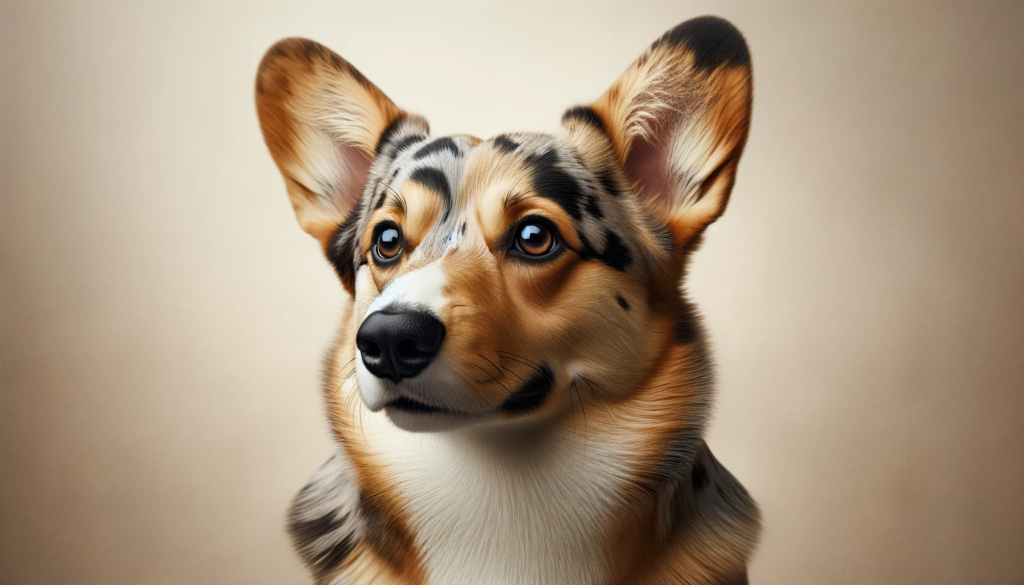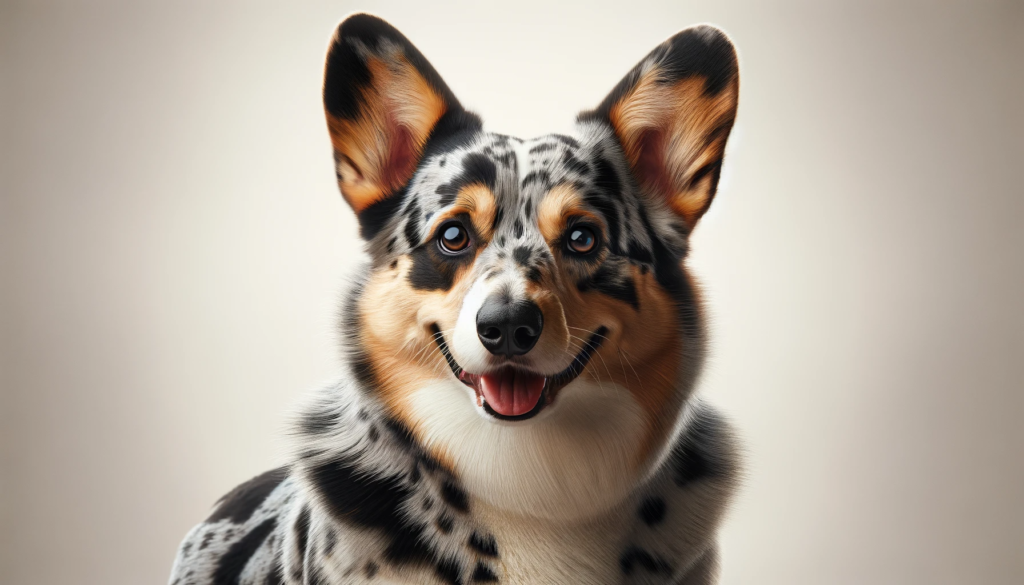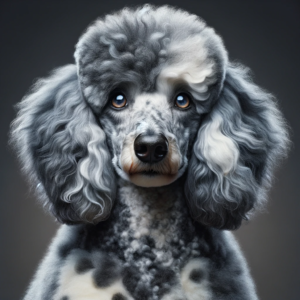As a holistic veterinarian, I am often asked about different dog breeds and their unique qualities. One breed that has recently sparked interest is the Cowboy Corgi. This intriguing mix of a Heeler and Corgi is as charming as its name suggests. In the following article, we will look into the characteristics, temperament, and other factors that make this breed quite the head-turner.
What Is This Breed: A Brief Overview
The Cowboy Corgi is a mix between the Australian Cattle Dog, also known as a Heeler, and the Welsh Corgi. This combination results in a small to medium-sized dog, typically weighing between 20 and 30 pounds. They are robust, sturdy dogs with a height ranging from 10 to 13 inches.
Appearance
Cowboy Corgis have short legs, a long body, and a tail that is usually docked. They have a thick, dense double coat which is weather-resistant. This makes them quite adept at handling different climates. Their ears are large, erect and distinctly Corgi-like, adding to their adorable appearance. Their eyes are generally dark, almond-shaped and convey a bright and intelligent expression.
Colors
The color of a Cowboy Corgi can vary significantly, depending on the dominant genes. They can be found in shades of black, brown, red, blue, or a mix of these colors. Some may even have the striking Heeler coat pattern, which is a mix of white and black or brown, known as ‘blue’ or ‘red’ Heeler.

General Temperament of Cowboy Corgi Breed
If you’re considering a Cowboy Corgi as your next pet, you’re in for a treat! This breed is known for its warm, friendly, and playful temperament, making it an excellent addition to most families. In this section, we’ll delve into the breed’s temperament, its family and kid-friendliness, and energy levels.
Is the Breed Family & Kid Friendly?
Absolutely yes! Cowboy Corgis are renowned for their loyalty, devotion, and affectionate nature. They love being part of the family activities and enjoy spending time with their human companions. Their small size and friendly disposition make them great playmates for children. However, like with all breeds, it’s always recommended to supervise playtime between dogs and young children to ensure safety for both.
Energy Level of the Breed
Cowboy Corgis are a blend of the energetic Australian Cattle Dog and the equally active Pembroke Welsh Corgi, so it’s no surprise they have a high energy level. They require regular exercise to keep them healthy and happy. This can include walks, visits to the dog park, or playtime in the backyard.
These dogs are also quite intelligent and love to engage in mentally stimulating activities. Puzzle toys, obedience training, or even agility courses can be a fun way to burn off some of that energy while keeping their minds sharp.
However, despite their active nature, Cowboy Corgis also appreciate downtime with their families. They love to snuggle up for a good cuddle session after a day of play.
In a nutshell, Cowboy Corgis are a bundle of joy wrapped in a compact, fluffy package. They’re loyal, affectionate, and energetic, making them a wonderful addition to active families. Just ensure you can meet their exercise needs, and you’ll have a loving and devoted companion for life.
Remember, every dog is unique, and while breed can give an indication of likely traits, individual personalities can vary. Always spend time with a dog before bringing them into your home to ensure they’re a good fit for your family and lifestyle. The joy and companionship a Cowboy Corgi can bring to your life are truly priceless!
Average Lifespan of a Cowboy Corgi
Cowboy Corgis are known for their long lifespans, with most living between 12 to 15 years. This is a testament to their overall hardy nature and strong genetics. However, the lifespan of a Cowboy Corgi can be influenced by several factors including diet, exercise, healthcare, and even spaying or neutering.
How Diet Affects Lifespan
The diet of a Cowboy Corgi plays a significant role in their overall health and life expectancy. These dogs are energetic and require a diet rich in proteins and carbohydrates to support their active lifestyle. Feeding your Cowboy Corgi with high-quality dog food can help ensure they receive the necessary nutrients for a healthy life.
Overfeeding or underfeeding can lead to various health issues including obesity, diabetes, and malnutrition, all of which can reduce your pet’s lifespan. It’s always recommended to follow your vet’s advice on the appropriate diet and feeding schedule for your Cowboy Corgi.
How Spay & Neuter Timing Affects Lifespan
While spaying and neutering is commonly recommended for pet owners to control pet population, research shows that the timing of these procedures can impact the longevity of your dog.
Spaying or neutering too early can interfere with a dog’s growth and development, potentially leading to health issues later in life.
For Cowboy Corgis, the best time to spay or neuter is usually between 12 – 18 months old. However, it’s important to consult with your vet to determine the best time for your particular dog.
Overall, the lifespan of a Cowboy Corgi can be significantly influenced by their diet and the timing of their spaying or neutering. As a responsible pet owner, it’s crucial to provide your Cowboy Corgi with a balanced diet and discuss the best time for spaying or neutering with your holistic vet to ensure your dog lives a long, healthy life.
Should You Rescue or Purchase This Breed?
When it comes to adding a Cowboy Corgi to your family, you have two main options: rescuing/adopting or purchasing from a breeder. Each option has its own unique benefits, and the choice will ultimately depend on your personal circumstances and preferences.
Benefits of Rescuing or Adopting
Choosing to adopt a Cowboy Corgi from a rescue organization can be a truly rewarding experience. Here are a few reasons why:
- Giving a Second Chance: By adopting a Cowboy Corgi, you’re providing a loving home for a dog that may have been abandoned, mistreated, or simply unwanted. This gives them a second chance at a happy and fulfilling life.
- Cost: Generally, adoption fees are less than what you’d pay a breeder. The fee usually includes initial veterinary care, such as vaccinations, spay/neuter surgery, and microchipping.
- Mature Dogs: Many rescue dogs are adults, so you may be able to bypass the time-consuming and often challenging puppy stage. Plus, their personality is typically already established, so you’ll have a better idea of whether they’re a good fit for your household.
Benefits of Buying
Purchasing a Cowboy Corgi from a reputable breeder also has its advantages:
- Pedigree Information: When you purchase a Cowboy Corgi puppy from a breeder, you’ll typically have access to detailed pedigree information. This can provide insight into the puppy’s genetic background, which may indicate potential health issues.
- Health Screening: Reputable breeders conduct health tests to ensure their breeding dogs are free from inheritable conditions, helping to produce healthier puppies.
- Early Socialization: Breeders often start the socialization process early, which can make your Cowboy Corgi puppy easier to train and more adaptable to various environments.
No matter what route you choose, it’s important to remember that every Cowboy Corgi deserves a caring, committed owner. Whether you decide to adopt or buy, make sure you’re ready for the responsibility and commitment that comes with owning a dog.
Average Cost For This Particular Breed
The cost of a Cowboy Corgi can vary widely, typically ranging from $200 to $800 depending on whether you choose to adopt or buy. Rescue organizations generally charge an adoption fee to help cover the cost of care provided to the animals, while breeders set their prices based on factors such as pedigree, coat color, and demand.
What To Look For In A Breeder
If you opt to buy a Cowboy Corgi puppy from a breeder, it’s crucial to choose a reputable one. Here are some things to look for:
- A good breeder will openly share health testing results and provide detailed pedigree information.
- They’ll allow you to visit and meet the puppy’s parents in their home environment.
- They’ll ask you questions to ensure you’re a suitable owner and provide ongoing support after you take your puppy home.
Remember, a good breeder cares about the welfare of their dogs and will want to ensure they’re going to a good home.

Training and Behavior of a Cowboy Corgi
As a blend of two herding breeds, the Cowboy Corgi is a smart and highly trainable dog. This breed is known for its keen intelligence and eagerness to please, which makes them relatively easy to train. However, like all dogs, they require consistent, positive reinforcement techniques. Here are key points you should know about training and behavior of a Cowboy Corgi:
Overall Trainability
The Cowboy Corgi is a quick learner, but they can also be a bit stubborn. Their independent streak comes from their herding heritage, where they were bred to make decisions on their own while herding livestock. Therefore, patience and consistency are crucial in their training. The use of treats, praises, and toys as rewards can go a long way in their training process.
Crate Training is Recommended and Why
Crate training is highly recommended for Cowboy Corgis. A crate can provide a safe and comfortable space for your dog, especially when you’re not at home. It can also aid in potty training and prevent destructive behavior. Remember, the crate should never be used as a punishment – it’s meant to be a positive, safe space for your pup.
Potential Negative Behaviors to Watch For
Despite their many positive traits, Cowboy Corgis can exhibit some negative behaviors if not properly trained or socialized. Here are some to watch out for:
- Herding behavior: As a mix of two herding breeds, your Cowboy Corgi may try to herd children, other pets, or even you. Training can help manage this behavior.
- Stubbornness: This breed can be a bit independent and stubborn at times. Consistent, patient training can help overcome this.
- Barking: Cowboy Corgis can be vocal. They may bark when they’re bored, anxious, or trying to alert you to something.
Remember, every dog is an individual and not all Cowboy Corgis will exhibit these behaviors. With proper training, socialization, and lots of love, your Cowboy Corgi can be a well-behaved and happy member of your family.

Grooming Requirements For Cowboy Corgi
Proper grooming is an essential part of maintaining your Cowboy Corgi’s overall health and well-being. Regular grooming not only keeps your pet looking their best, but it also gives you a chance to check for any abnormalities such as lumps, ticks, or skin issues. So, let’s dive into the specific grooming needs of the Cowboy Corgi breed.
What About Shedding
If there’s one thing you should know about the Cowboy Corgi, it’s that they’re a shedding breed. Yes, these adorable furry companions shed profusely, especially during the shedding seasons of spring and fall. Their double coat, which keeps them warm in winter and cool in summer, requires regular brushing to manage the shedding.
A good rule of thumb is to brush your Cowboy Corgi at least two to three times a week. This will help to control the amount of hair around your house, as well as promote healthier skin and a shinier coat. For brushing, I recommend using a slicker brush or de-shedding tool designed for dogs with double coats.
Excessive Shedding May Be Due To Nutrition
While shedding is a normal part of a Cowboy Corgi’s life, excessive shedding could be a sign of poor nutrition. A diet lacking in essential nutrients can lead to a dull coat, dry skin, and increased shedding.
To ensure your Cowboy Corgi is getting the right nutrients, opt for high-quality dog food that’s rich in omega-3 and omega-6 fatty acids. These nutrients are known to improve skin health and reduce shedding. Foods that are high in protein can also contribute to a healthier coat.
Remember, every dog is unique, and what works best for one Cowboy Corgi may not work as well for another. If you’re unsure about what food is best for your pet or if your dog’s excessive shedding persists, it’s always a good idea to consult with your vet.
In addition to regular brushing and a balanced diet, other grooming tasks for your Cowboy Corgi include regular teeth cleaning, nail trimming, and ear checks. It’s important to start these grooming routines early, so your Cowboy Corgi can become comfortable with the process.
In summary, owning a Cowboy Corgi means embracing the reality of shedding, but with regular grooming and proper nutrition, you can manage it effectively. And remember, the joys of sharing your life with a Cowboy Corgi far outweigh the inconvenience of a little extra hair around the house!
Health Of Breed
Overall Health
The Cowboy Corgi, a mix between the Australian Cattle Dog and the Pembroke Welsh Corgi, is generally considered a healthy dog breed. These dogs are known for their vitality and active lifestyle. However, like any breed, they are susceptible to certain health conditions.
Their overall health largely depends on the quality of care they receive. Regular vet check-ups, a balanced diet, and plenty of exercise can help keep your Cowboy Corgi in excellent health. As a responsible dog parent, you should also be aware of the potential health issues that are common to this breed.
Potential Health Conditions
Although cowboy corgis are robust and healthy dogs, they are predisposed to some health concerns. This is largely due to the health issues prevalent in their parent breeds.
1. Intervertebral Disc Disease (IVDD): This is a condition that affects the spinal cord, and it’s common in short-legged, long-bodied dogs like Corgis. It can cause pain, difficulty walking, or even paralysis. Regular exercise and maintaining a healthy weight can help prevent this condition.
2. Progressive Retinal Atrophy (PRA): This is an inherited condition that can lead to blindness. Although there’s no cure, early detection can help manage the condition.
3. Hip Dysplasia: This is a common condition in many dog breeds, including Cowboy Corgis. It happens when the hip joint doesn’t develop correctly, leading to arthritis or lameness.
4. Obesity: Due to their love of food and potential for lower activity levels, Cowboy Corgis are prone to obesity. This can lead to other health problems like diabetes and heart disease.
Remember, these are potential health conditions, and not every Cowboy Corgi will experience them. It’s also important to note that responsible breeding can significantly reduce the risk of inherited conditions.
Nutrition & Diet
Nutrition Tips From Dr. Candy
Proper nutrition is crucial for your Cowboy Corgi’s health. I recommend a balanced diet rich in protein, fats, and carbohydrates. Cowboy Corgis do well with homecooked foods and high-quality commercial dog food formulated for active breeds.
To prevent obesity, monitor your dog’s calorie intake and ensure they get plenty of exercise. Treats should make up no more than 10% of their daily calories.
Best Foods For This Breed
When it comes to the best food for your Cowboy Corgi, opt for premium quality brands that use whole-food ingredients. Some good options include:
 1. Blue Buffalo Life Protection Formula: This food is rich in high-quality proteins and grains, with plenty of fruits and veggies for balanced nutrition.
1. Blue Buffalo Life Protection Formula: This food is rich in high-quality proteins and grains, with plenty of fruits and veggies for balanced nutrition.
 2. Nutro Ultra Adult Dry Dog Food: This brand offers a mix of lean proteins, whole grains, and superfoods, perfect for an active breed like the Cowboy Corgi.
2. Nutro Ultra Adult Dry Dog Food: This brand offers a mix of lean proteins, whole grains, and superfoods, perfect for an active breed like the Cowboy Corgi.
 3. Wellness CORE Grain-Free: If your Cowboy Corgi has a sensitive stomach, this grain-free option might be suitable.
3. Wellness CORE Grain-Free: If your Cowboy Corgi has a sensitive stomach, this grain-free option might be suitable.
Remember, every dog is unique, and what works best for one may not work for another. Always consult with your vet before making significant changes to your dog’s diet. In conclusion, the Cowboy Corgi is a unique breed that combines the best traits of the Heeler and the Corgi. They are energetic, intelligent, and loyal, making them excellent companions for active individuals or families. However, they require a lot of exercise and mental stimulation, so they may not be the best choice for everyone. If you are considering adding a Cowboy Corgi to your family, make sure you are prepared for the commitment and can provide them with the care they need.
Frequently Asked Questions
1. What is a Cowboy Corgi?
A Cowboy Corgi is a crossbreed between a Heeler and a Corgi. They are known for their intelligence, energy, and loyalty.
2. How much exercise does a Cowboy Corgi need?
Cowboy Corgis are very active and require a lot of exercise. They need at least an hour of vigorous exercise each day.
3. Are Cowboy Corgis good family pets?
Yes, Cowboy Corgis can make excellent family pets. They are loyal and protective, and they get along well with children.
4. What kind of care does a Cowboy Corgi require?
Cowboy Corgis require regular exercise and mental stimulation. They also need regular grooming due to their thick coats.
Dr. Candy, a holistic veterinarian and certified raw dog food nutrition specialist, graduated from Oklahoma State University in 2009 with a DVM and has since specialized in companion animal nutrition, advocating for species-specific diets. With a background in wildlife rehabilitation and oil spill response, she combines holistic health and conventional medicine in her unique approach to treating chronic diseases, allergies, and autoimmune conditions in pets. As the owner of a veterinary practice in Colorado and an author, Dr. Candy is dedicated to educating pet parents and improving the health and happiness of animals.



